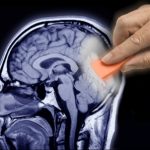You Might Not Feel Tired, But Your Brain Needs More Sleep
Are you getting enough sleep? Before you answer, try this: Sometime during your workday, sit down (at your desk is fine) and close your eyes. For the next few minutes, just focus on your breathing, paying attention to each inhale and exhale. This is a standard mindfulness exercise. If you find yourself getting drowsy, then sorry, but you’re not sleeping enough.
You might feel reasonably well-slept while you’re going about your work. You might even come out of that brainstorm with your team energized about the ideas you’ve all come up with. But those subjective assessments are more likely to tell you where your energy levels might be at a given moment—not how well rested you actually are. Here’s why your brain may need more sleep than you’re giving it, even if you don’t feel sleepy right this second.
Everyone’s Sleep Debt Is A Little Different
The typical person needs about eight hours of sleep, though there are big individual differences in what counts as optimal shut-eye from person to person, and the amount of sleep people need tends to decrease as they age. Nonetheless, most people don’t get the amount of sleep they need; as one study suggests, six hours of sleep—which might sound like a solid chunk—can be as bad as none at all.
Humans are surprisingly resilient creatures; our bodies and minds are pretty good at making do with things that aren’t exactly good for us, like chronic sleep deprivation. It’s easy to see how people quickly fall into a pattern of getting too little sleep, and then conclude that that’s just their normal baseline.
Even after a really long workday, you still may need to decompress in the evening, so you surf social media or watch a little TV. Before you know it, it’s an hour past when you should’ve gone to bed. On weekends, you stay out late to see a concert or watch a movie and hope to catch up in the morning, but your internal clock wakes you up close to when your alarm would anyway. Before you know it, you’ve run up a big sleep debt.
Maybe you only feel a little tired as a result, though, and with a little extra coffee you can still get by just fine. But just beneath the surface, your cognitive functioning is paying an unseen price. Here are a few of the areas where your brain might be struggling, even if that doesn’t consciously register.
Concentration
One of the first things to go when you’re under-slept is your ability to concentrate. It’s just harder to stay focused on the work you are doing when you are tired—which you might chalk up to just about anything.
This is particularly true when the work you’re doing is self-paced. On tired days, you’ll find yourself shifting between tasks and getting distracted by new emails, voices drifting over from the next cubicle, and even just the random thoughts you have. Not to mention that you may fall asleep in the middle of reading something important.
Working Memory
Sleep deprivation also narrows your working memory capacity. “Working memory” refers to the amount of information you can hold in mind at once. The greater your working memory capacity, the more complex thinking you’re able to do. Solving the most difficult mental puzzles is actually a task for your memory—in order to land on a good solution, you need to yank relevant bits of information out from your recollection. But when your working memory is more constricted, you’ll have a harder time wringing out of it what you need—and, subsequently, making tough decisions well.
Learning
Third, when you don’t get enough sleep, it’s harder to remember new things. Sleep actually has two different effects on memory; recall (above) is only one of them. It also impairs the functioning of a brain structure called the hippocampus, which is crucial for helping you to learn new things. And unfortunately, giving yourself a hit of caffeine won’t help the hippocampus work better, even if it does make you feel more alert.
Believe it or not, you actually continue forming new memories while you sleep, in a process called “consolidation.” That’s when your brain fits together the string of recent experiences you’ve had into coherent memories that get stored away. If you don’t sleep enough, this consolidation process can’t take place very effectively, and when you wake up again, you’ll have trouble remembering new information you encountered.
Mood
Not sleeping enough also hurts your mood—which probably isn’t news to you. The only thing, though, is that we tend to attribute being in a “bad mood” to a wide range of experiences. Maybe you tell yourself it was your boss’s annoying request this morning, or your aggravating commute that set your teeth on edge. But it’s pretty likely those things wouldn’t have bothered you so much if you were more well-rested.
In fact, disruption of your sleep cycle can increase symptoms of depression. You might not feel that you’re clinically depressed (or even all that tired) just because you’re finding it hard to be nice to your coworkers. But your lack of sleep might be the culprit.
Long-Term Damage
Finally, the quality of your sleep can have long-term consequences for your brain. As you get older—say, into your 40s and 50s—a lack of sleep on any given night doesn’t have as big an impact on your ability to function as it does when you’re younger, in your 20s and 30s. So you may actually have more trouble telling when you’re not well-rested the older you get. But that doesn’t mean you can just trust your subjective instincts (“Do I feel tired?”) while you’re younger.
The better you sleep—at all ages—the better the protection you give to your brain for your later years. Poor sleep habits, even in middle age, are associated with higher levels of cognitive problems, like senile dementia, later on in life.
You may not think that sleep is that big a deal. Your life doesn’t completely fall apart when you get less sleep than you might need on a particular night. But it can wear away at you slowly unnoticed. Over time, a lack of sleep really does chip away at your productivity and cognitive functioning. So tonight, shut off the TV, power down your smartphone, hop into bed, and get some rest. You’ll thank yourself later—not just tomorrow morning, but years from now.
You might not feel tired, but your sleep deficit is probably holding back your cognitive functioning.
Are you getting enough sleep? Before you answer, try this: Sometime during your workday, sit down (at your desk is fine) and close your eyes. For the next few minutes, just focus on your breathing, paying attention to each inhale and exhale. This is a standard mindfulness exercise. If you find yourself getting drowsy, then sorry, but you’re not sleeping enough.
Fast Company , Read Full Story
(54)














